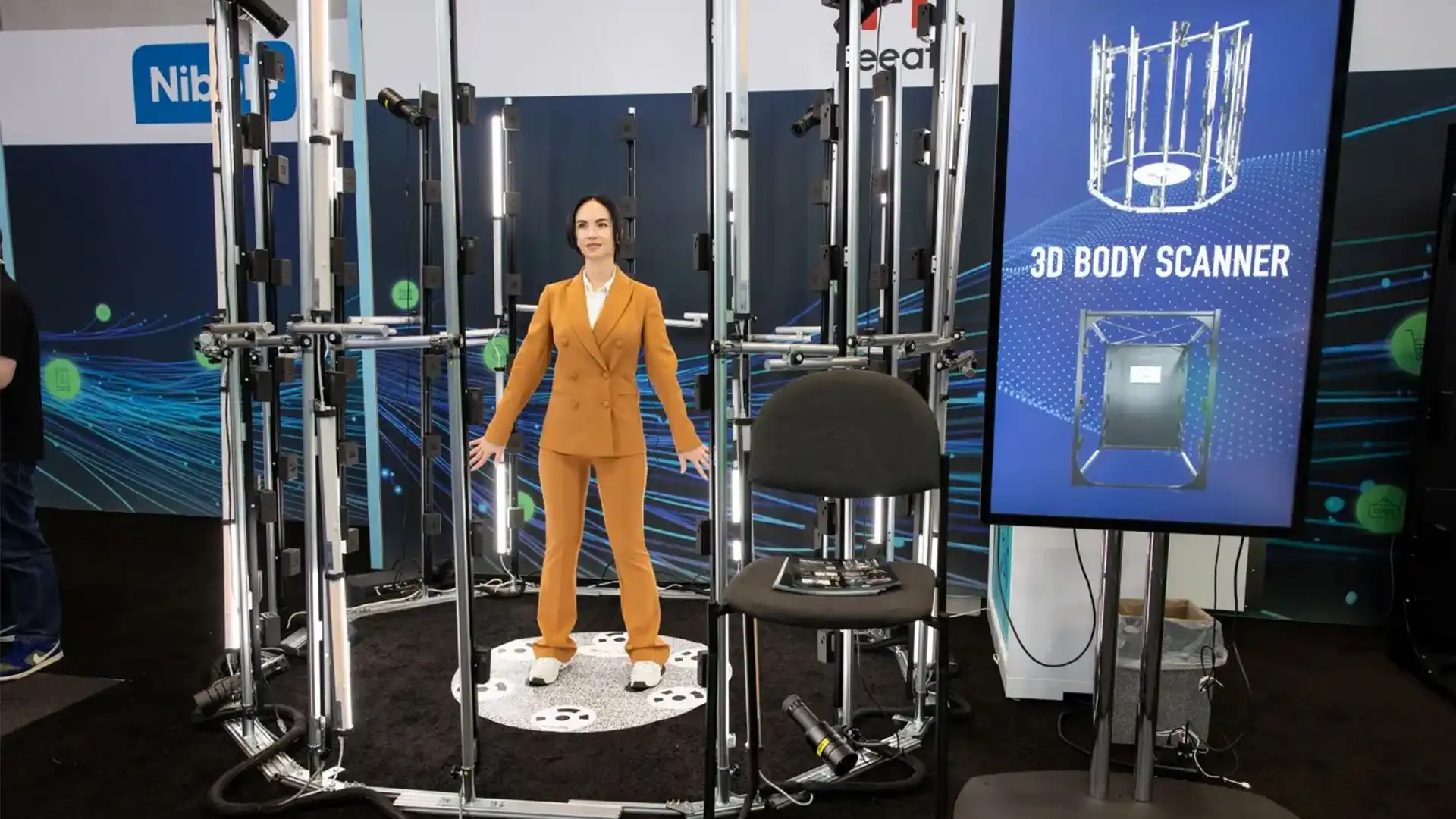As a result of the COVID-19 pandemic, people have begun reevaluating what works means to them. Following a period of great stress and employment uncertainty for many, this has led to Americans quitting their jobs at dramatic rates. So, employers around the world have shifted their attention to improving their employee experience to meet the changing needs of their employees attract new talent. Read on to learn how Intuit, Marriott International and Men's Wearhouse are putting their employees first.
The Great Resignation
Before we dive in, let's set the stage... During every month from April to August 2021, at least 2.5% of the U.S. workforce quit their jobs. The rate even reached 2.9% in August—the highest the U.S. Bureau of Labor Statistics has ever recorded—with 4.3 million resignations. This trend has been coined “The Great Resignation” by Anthony Klotz, a professor of business administration at Texas A&M University. While the turnover tsunami is impacting white-collar and blue-collar jobs alike, the industries of retail, food, hospitality, manufacturing, healthcare and technology have been hit particularly hard.
Why the sudden increase in resignations? As we continue to adjust to our new normal, people are pursuing more meaningful careers, greater work-life balance, increased flexibility and better compensation. This is driven by a combination of backlogs of people who didn’t quit their jobs earlier during the pandemic, burnout, “pandemic epiphanies” and a desire to retain flexibility.
To combat employee turnover, companies are embracing the challenge to provide a better work experience. Many businesses have gotten creative to adopt work-at-home or hybrid models, conduct virtual onboarding, provide additional mental health initiatives, promote upskilling and more.
The Power of Culture
There is a famous Peter Drucker quote that says, "Culture eats strategy for breakfast."
Drucker meant that the culture of a company ultimately determines its success. If employees aren't engaged and passionate about a company's vision, they won't be enthusiastic about executing the plan and projects will eventually fail. People are what make the difference. A company’s culture has been proven to have a strong influence on employee engagement, as well as a significant impact on financial performance.
But a company’s culture isn’t necessarily about perks like free coffee, ping pong tables or casual Fridays; it's the invisible glue that holds everything together. It includes things like norms, behaviors, values—stuff that’s difficult to document, measure and manage.
Intuit is a great example of a values-driven company. Sasan Goodarzi, CEO, says, “Our mission to power prosperity around the world is why we show up to work every single day to do incredible things for our customers. Our values (Integrity Without Compromise, Stronger Together, Customer Obsession, We Care And Give Back, and Courage) guide us and define what we stand for as a company."
At Marriott International, a people-first culture and deep commitment to diversity, equity and inclusion have guided how they interact with people and do business every day. “Our associates’ wellbeing is our number one priority and has been for more than 94 years. We are deeply committed to supporting our associates’ personal and professional growth and wellbeing” says Maruiel Perkins-Chavis, Vice President of Global Diversity Equity and Inclusion at Marriott International. Marriott brings this commitment to life through TakeCare–a global approach to employee wellbeing.

Put to the Test
With constant pressure from all sides, the past two years have been the ultimate test of company culture. When the pandemic began, companies had no time to waste. Intuit quickly migrated all 10K+ employees to work-from-home employees—and that's no easy task!
"Intuit's values are representative of what matters most," says Ryan McAllister, Global Partnerships & GTM Leader at Intuit. "Those values have not changed. Employees have had to deal with varying changes and Intuit has ensured that all employees are staying safe and getting the help they need." To help answer employees' questions, Intuit launched a COVID resources page that offered work-from-home transition guidance, health and wellbeing resources, return-to-the-workplace protocols and more.
Marriott also relied on its core values to guide its response. They often repeat the words of their founder, J. Willard Marriott, who said, “Take care of the associates and the associates will take care of the guests and the guests will come back again and again.” This mantra was at the core of the company's response to COVID-19.
"The pandemic proved that our company—and our associates—are a resilient force," says Perkins-Chavis. "This is not the first storm Marriott has weathered in its 94-year history, and it won’t be the last. Our focus continues to be on supporting our associates. And our associates, in turn, support Marriott by continuing to do what they do best – taking care of each other, serving our guests, and supporting our local communities. What’s most powerful is the knowledge that Marriott is 'Here to Stay.'"
In such a new environment, many organizations, like Tailored Brands which includes Men’s Wearhouse, realized that their culture needed a change. They are actively engaging employees at all levels to collaborate on ideas, host change management workshops and rebuild together. However, they strive to keep customer service and legendary customer service at the core of all they do.
Changing the Way We Work
Since the pandemic began, we’ve all known someone who’s switched to fully remote work, someone who adopted a hybrid work environment or someone who was considered a frontline worker and has continued to work in-person every day. Regardless, all employers have had to make adjustments.
Like many companies, Intuit’s first move was to switch all employees to remote work. Today, most employees are still working from home, with a few “pilot” offices opening in-person for a small number of employees. Of course, back-to-back virtual meetings have resulted in Zoom fatigue for some. To combat this, Intuit’s Corporate Responsibility Team introduced “no meeting days” and “recharge days” where the entire company has the week of July 4th off, as well as the week between December 25 -January 1 each year. The current return-to-office date for employees near an Intuit office is mid-January 2022, which is subject to change based on COVID guidance from local government and health officials.
In the retail space, Men’s Wearhouse initially responded by dramatically shortening store hours, but is now approaching regular stores hours, similar to pre-pandemic days. To rebuild their teams, they’ve had to face a very competitive market as part-time employees are in extremely high demand. While this brings new challenges, Bruce Garber, Business Outreach Manager at Tailored Brands says, “The benefit is that we’ve learned not to waste time in the decision-making process and hire much quicker than we did previously.”
Renewed Focus on Mental Health and Wellness
As the pandemic wears on and more and more employees are prone to experiencing burnout, mental health conversations have continued to move into the forefront. Employers are responding by increasing their mental health support resources and wellness programs.
“At Men’s Wearhouse, we openly talk about mental health and are even encouraged to take time off and leave our phones/computers at home when away from work,” says Garber. Mental health resources are part of the company’s benefits package and employees have access to online, phone on in-person visits with mental health professionals.
For Intuit, this has meant allowing employees to take time off with Intuit-wide recharge days, supplemental sick days and family support time, providing free professional counseling calls if employees are feeling overwhelmed, and offering free subscriptions to meditation and yoga platforms. Employees also have physical well-being resources, like virtual workouts and discounts on athletic gear.
Mental health and emotional wellbeing are also top priorities for Marriott. "Our TakeCare culture and specific programming supports physical, emotional and financial wellbeing," says Perkins-Chavis. "We have communicated the long-standing resources available and offered new and enhanced initiatives to meet evolving needs. In 2020, Marriott partnered with meQuilibrium to offer associates around the world free access to the scientifically proven tool that helps individuals improve their lives through a focus on coping with stress and finding inner resilience."
All associates and family members also have free and confidential access 24/7 to expert consultants who can help with topics such as parenting, homeschooling, setting up an at-home office, finding child and elder care, addressing legal concerns, finding community services, locating virtual wellness programs and much more.
Employee Development and Upskilling
A positive of the pandemic is that many people had a chance to grow their skills. When employees participate in training programs, they tend to see a path to future advancement. In a September Gallup survey, almost half of workers (48%) said they would even switch to a new job with more training opportunities. Intuit, Men’s Wearhouse and Marriott have also implemented new initiatives to promote employee upskilling.
Marriott's Perkins-Chavis believes that “personal growth in and outside of the workplace is a key factor to feeling good and living well.” Through skills training programs, development opportunities and other learning experiences, associates have access to diverse offerings for both personal and professional growth.
When the pandemic began, Marriott moved quickly to support associates with opportunities to continue to learn and grow by:
- Ensuring easy access to personal and professional development resources
- Rapidly converting traditional instructor-led training into virtual formats
- Providing relevant, just-in-time training to associates at the property level on the latest standards in cleaning and safety.
This resulted in a blend of new, digital trainings and existing opportunities to help associates upskill, reskill and navigate this continued challenging period. They even enhanced their Digital Learning Zone with more than 2,000 new resources covering concepts such as working and managing in a remote environment, language skills, leadership and growth skills and even various collegiate courses.
There's no magic solution to achieve ideal workplace culture, and if we've learned anything, it's that culture is a living thing that needs to be monitored and nourished. The companies that focus on the needs of their employees are the ones who will successfully chart a course for the future.
Looking for more information to help with your Business Operations Research competitive event? Check out the below resources.














